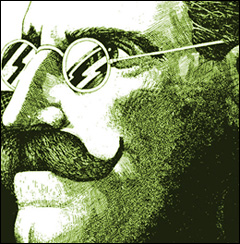Conclusions
John Dewey matters. And not just in the historical sense as a clear-cut, seminal forefather to modern American education, but in the active sense as a potential contributor to contemporary discussions of rhetoric, language, and technology. New research agendas could hinge upon understanding Dewey as a rhetorician, indeed as an analytical philosopher who can productively inform writing pedagogies and rhetorical theory through unique approaches that according to Larry Hickman (2007) anticipate post-postmodernist trends. Traces of Deweyan pedagogy and theory are evident and deeply entrenched all throughout our discipline so a justification of his use usually entails attempts to reveal many ways in which we as educators and scholars of rhetoric are “pragmatist.” Putting Dewey into conversation with the field of computers and writing is an integral move to make not only in making and keeping Dewey relevant to education, but also in taking up Danisch’s (2007) and Crick’s (2010) calls by putting him into larger conversations in contemporary rhetoric about increasing trends towards materiality and new relationships we are forging with technology.
That being said, simply transferring an admittedly dated philosophy to our current use of technologies in the classroom is not enough. The implementation of Deweyan pragmatism into social action blogging assignments in writing classrooms must be a process of negotiation, one that allows for a working towards new conceptualizations of pragmatism. Putting Dewey into conversation with the field of computers and writing is an integral move to make not only in making/keeping Dewey relevant to education, but also in putting him into larger conversations in contemporary rhetoric about increasing trends towards materiality and new relationships we are forging with technology. Many pragmatists will turn to Janet Emig’s (1983) quote (“Dewey is everywhere in our work”) to justify Dewey’s presence in rhetoric and composition discussions. And while Dewey’s ideas are not revolutionary or new, it is timely that we look back to Dewey at a time when the relationship between the public and the school is becoming increasingly complex and when the two “overlapping” publics of digital participatory education and physical civic engagement need explicit connections drawn between them in clear ways.
Blogging tools, like Wordpress, can be expanded for a wide array of purposes and need not be pigeonholed to just fit the exigencies that have driven their typical use. Richard Lanham (1990) once wrote, “We will have to decide how technology can be orchestrated into socially responsible use” (p. xv). In this webtext I have shown how turning our attention to the ethical framework of John Dewey, a well-known educator, oft-forgotten philosopher, and newly-tabbed rhetorician, can challenge the common rhetorical exigencies associated with educational blogging in potentially powerful ways. Middlebrook (2009) and others have expanded our use of blogging, but blogs can continue to be expanded even further and must be expanded outside of our typical rhetorical exigence to completely access the full potential. What would happen if we stopped thinking about blogs as merely spaces for personal narratives and used these highly usable web spaces as socially responsible spaces that are accountable to the public and to the local community itself? How can blogs shift our understanding from promoting the self to promoting the community? This challenges students’ and teachers’ conceptions of blogs as representations of the “self” and asks them to consider what using blogs for giving voice to a disadvantaged group might look like.
Blogs have the potential to encourage students and their ethical awareness of social issues but only if we stop seeing blogs as mere journaling or exercises in professionalization and ethos and start seeing them as spaces that represent others’ voices. The intent here is not to completely quash other purposes of blogging associated with a more individualistic ethic, but rather to challenge writing instructors to think of new exigencies to spur on civic-oriented, rhetorically responsible blogging.
